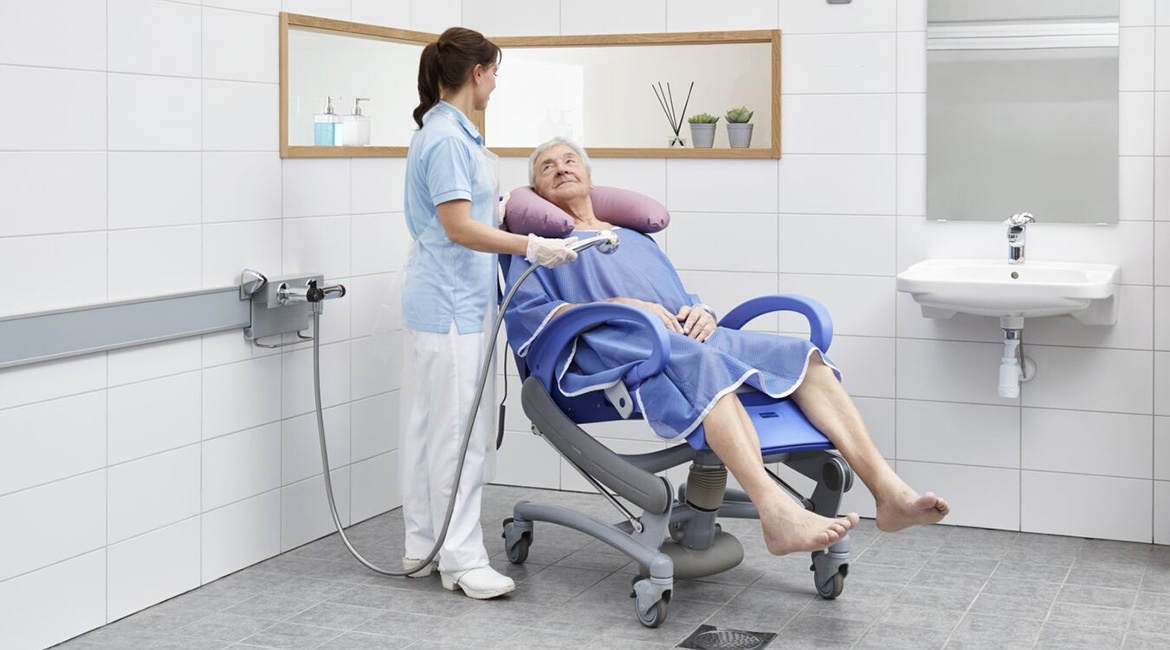9 Ways Dementia Alters Perception: Adapting Care for Comprehensive Support
Author: Dawn Wiggins, RPN, MSc
Dementia is a complex journey marked by a series of changes that individuals experience as the condition advances. These changes are a natural part of dementia, and comprehending them is crucial for providing effective, person-centered care and purposeful mobility based upon the individual’s optimal level of function.

- Vision changes
In early dementia stages, individuals may face general vision field changes. Normal aging, for instance, can lead to a gradual loss of approximately 45 degrees of field of vision, akin to looking through a tunnel. As dementia progresses, vision alterations continue, and individuals may see things with both eyes but in a manner, resembling looking through binoculars, with a more restricted field of vision. - Language changes
Communication is affected as well. In initial stages, challenges with high-pitched sounds and crowded spaces may arise, accompanied by slower speech and consonant omissions. Progressing dementia brings further communication difficulties, including comprehension and word repetition. Clear speech and visual aids are essential for facilitating communication. - Expressive language changes
Expressing oneself can change over time. Initially, there may be difficulty finding the right words and articulating them, along with repetitive speech and intonation variations. In later stages, communication can become even more challenging, often relying on non-verbal cues like gestures and expressions. - Dexterity and hand skills
Dexterity and hand skills may be impacted. In early stages, hand movements might slow, and coordination between hands can be limited. As dementia advances, fine motor skills may decline further, making everyday tasks more challenging. - Body skills
The body's movements are also affected. In the early stages, individuals may move more slowly and pay less attention to detail in their movements. Further progression can lead to challenges in controlling body segments, necessitating increased safety measures during mobility. - People awareness skills
Awareness of people can change too. Initially, individuals may take longer to recognize others, making building and maintaining relationships more challenging. In advanced stages, recognizing even familiar faces can become difficult, emphasizing the need for consistent and familiar caregivers. - Place awareness skills
Navigating familiar places can be challenging early on, often requiring assistance. Later, the ability to navigate unfamiliar places may diminish significantly, underlining the importance of a well-organized, familiar environment. - Time awareness skills
Perception of time is another area of change. Early on, individuals may experience a sense of time that differs from their surroundings. As dementia advances, this perception of time can become even more altered, requiring caregivers to be patient and adapt to the individual's unique sense of time. - Situation awareness skills
Cognitive flexibility and emotional interactions can change too. Initially, individuals may struggle with adapting to new situations and may have emotion-driven reactions. In later stages, these challenges can intensify, underscoring the importance of providing a calm and emotionally supportive environment.
When providing care for individuals living with changes to brain functioning it is important to utilize mobility devices that allow a mobility that meets the person’s functional needs. Arjo provides specific mobility and bathing solutions designed to support individuals with dementia through these changes. Some of these solutions have received accreditation through the Dementia Services Design Center, highlighting their effectiveness in enhancing the quality of life for individuals living with dementia.
In conclusion, understanding the progression of dementia and these changes is crucial for effective person-centered care. By recognizing these shifts during patient handling and adjusting our care approach accordingly, we can enhance the quality of life for individuals living with dementia. Person-centered care, supported by specialized solutions, empowers teams to navigate the challenges of dementia with dignity and compassion.
Dementia Care Solutions Clinical Focus Guide
Due to the progressive nature of dementia and the potential presence of other chronic underlying conditions that may already affect mobility, the declining ability of the person to understand the task to be completed, along with communication challenges, it is easy to appreciate that hygiene care, mobility, and safe moving and handling are potentially complex aspects of supporting people with dementia.
Download our Dementia Care Solutions Clinical Focus Guide and learn about:
- Person-centered care for people living with dementia
- Overview and summary of needs when assessing hygiene and mobility risk
- Care recommendations for hygiene, mobility, and handling in dementia care
- Case examples from the Arjo Dementia Care portfolio
DOWNLOAD DEMENTIA CARE SOLUTIONS CLINICAL FOCUS GUIDE
Talk to an Arjo Solutions Expert
Learn more about Arjo’s wide range of dementia product solutions by speaking with an Arjo Solutions Expert, who will respond to your request in a timely manner.
 About the author
About the author